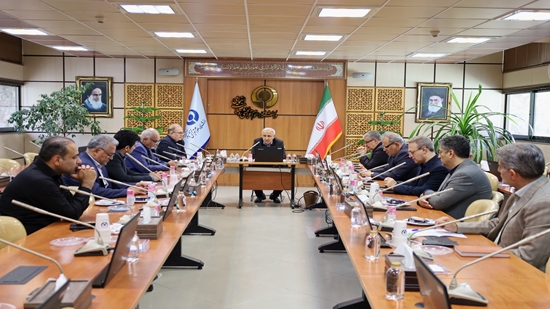University Preparedness to Provide Rehabilitation and Mental Health Services During Crises

University Preparedness to Provide Rehabilitation and Mental Health Services During Crises
The Chancellor of the University of Social Welfare and Rehabilitation Sciences emphasized the importance of the university’s readiness to deliver specialized services in rehabilitation, mental health, and social health during times of crisis and war.
According to a report from the university’s web news agency, the university’s executive board, including the vice chancellors and members, convened a meeting to assess preparedness. During this session, Dr. Seyed Ali Hosseini, the university chancellor, addressed current issues and offered condolences for the days of mourning for Imam Hussein (AS).
In light of the recent 12-day war and the attacks by Israel on our country, Dr. Hosseini congratulated the Iranian nation and the resistance front on their great victory. He stated, “With utmost pride, I commend the monumental victory of the Iranian people and the resistance front in their 12-day struggle against the Zionist regime and its global supporters, especially the United States.”
He further explained that this victory not only demonstrated defensive strength, national unity, and strategic patience but also stood as a clear testament to the righteousness, resilience, and unparalleled capacity of our people in confronting oppression and aggression.
Hosseini emphasized that during days when the enemy mistakenly believed they could break our nation, brave, faithful, and aware citizens proved their worth by inspiring global admiration.
The university remains committed to being fully prepared to deliver rehabilitation and mental health services in emergencies, ensuring sustainable support for society during critical times.
Highlighting the Role of Universities During Current Crises, the Chancellor of the University of Social Welfare and Rehabilitation Sciences emphasized that, as an academic and social institution, the university bears a vital responsibility to enhance awareness, clarify truths, and cultivate informed, responsible, and committed individuals during these challenging times.
He also acknowledged the efforts of vice chancellors, staff, medical centers, and healthcare personnel during the war period. He stated that, given the country's situation, the heads of medical universities convened three times in the past two weeks, with the Minister of Health, vice presidents, and university leaders implementing essential measures to provide healthcare and treatment services.
Dr. Hosseini announced that field visits to Rofeideh Specialized Rehabilitation Hospital and Razi Psychiatric Hospital took place during the crisis, with university vice chancellors participating to assess readiness and ongoing actions firsthand.
He added that the university’s executive council held two urgent meetings during this period to review key issues across various sectors and devise necessary strategies.
Reaffirming the university’s full preparedness to deliver specialized services, Hosseini emphasized that the University of Social Welfare and Rehabilitation Sciences is ready to provide rehabilitation, mental health, and social health services, leveraging all available capacities during emergencies.
He also praised the dedication of healthcare workers and university staff in these challenging times, stressing that colleagues in treatment centers and the university responded responsibly.
Furthermore, he underlined the importance of “professional ethics during crises” for all staff within the Ministry of Health and called for increased preparedness and coordination.
Finally, Dr. Mohammad-Ali Mohseni, Vice Chancellor for International Affairs, highlighted the significance of rehabilitation and mental health during emergencies. He mentioned that, in a meeting attended by the President, the university reaffirmed its readiness in rehabilitation, social health, and mental health sectors in wartime conditions.


نظر دهید